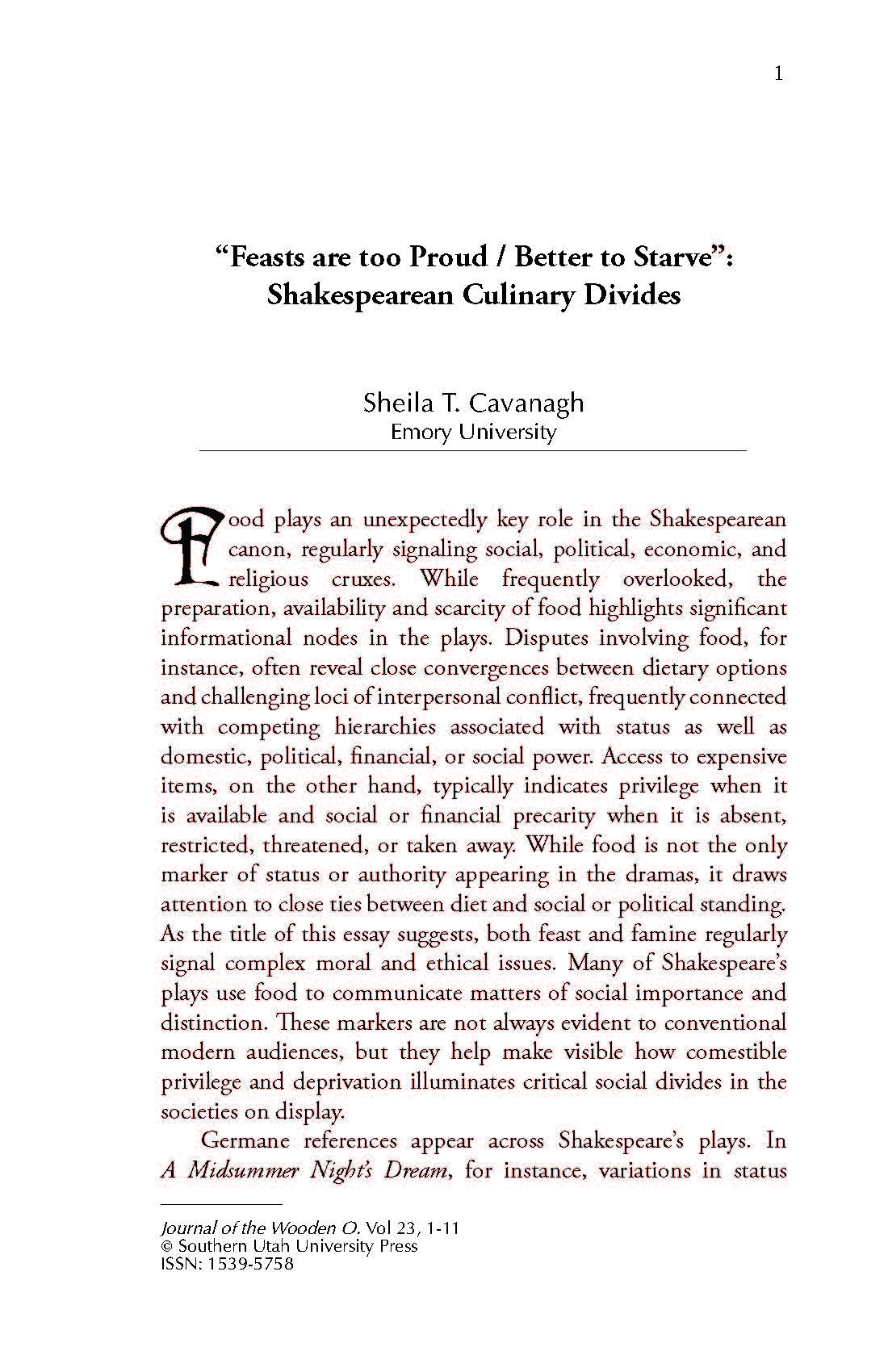"Feasts are too Proud / Better to Starve" Shakespearean Culinary Divides
Main Article Content
Abstract
Food plays an unexpectedly key role in the Shakespearean canon, regularly signaling social, political, economic, and religious cruxes. While frequently overlooked, the preparation, availability and scarcity of food highlights significant informational nodes in the plays. Disputes involving food, for instance, often reveal close convergences between dietary options and challenging loci of interpersonal conflict, frequently connected with competing hierarchies associated with status as well as domestic, political, financial, or social power. Access to expensive items, on the other hand, typically indicates privilege when it is available and social or financial precarity when it is absent, restricted, threatened, or taken away. While food is not the only marker of status or authority appearing in the dramas, it draws attention to close ties between diet and social or political standing. As the title of this essay suggests, both feast and famine regularly signal complex moral and ethical issues. Many of Shakespeare’s plays use food to communicate matters of social importance and distinction. These markers are not always evident to conventional modern audiences, but they help make visible how comestible privilege and deprivation illuminates critical social divides in the societies on display.
